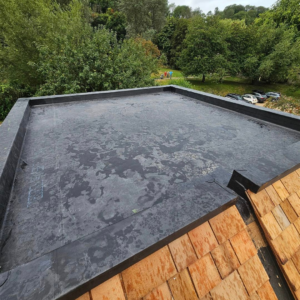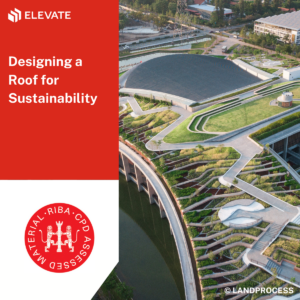Philip Moors, managing director of Elevate UK & Ireland, discusses the trends and opportunities shaping the roofing industry in 2025
After another challenging year for construction, we begin 2025 with cautious optimism. The industry is showing signs of stabilising and a modest return to growth albeit at a slower rate than we had hoped. Uncertainty will remain but running alongside this common theme are key trends that should help the flat roofing industry to thrive.
Collaborative growth
Although the residential market is still sluggish, there are several sectors offering glimmers of hope. The funding announced in the Chancellor’s October Budget should boost work in education, healthcare and industrial. With billions now available to upgrade schools, extend hospitals, and potentially develop new logistics facilities, there are clear opportunities.
To take advantage of these, collaboration is essential. At Elevate, we have implemented several initiatives to strengthen partnerships and in turn, drive growth in non-residential sectors. These include developing a full technical team in the UK to support contractors, specifiers and distributors. We have also launched specialist training for commercial contractors focusing on the installation of our full systems.
To further enhance contractor partnerships, we now offer site inspections with drones, improving productivity and accuracy. As well as providing a quicker, safer and more efficient survey, the software is linked with our estimating tool. This enables us to create a fast and precise digital list of all the materials and labour needed for a roofing refurbishment, removing the need for manual methods.
New approaches to labour challenges
An aging workforce, training gaps and rising costs are just some of the factors that will continue to exacerbate the skills shortage, especially in roofing. As an issue that could take years to fix, we need to find new ways of helping to address the challenge.
Product innovation is part of the solution and will be vital in the year ahead. Self-adhesive technology has a crucial role to play, making it quicker and easier for installers to refurbish large flat roofs.
RubberGard EPDM SA for example is a self-adhered EPDM roofing membrane aimed at the commercial and industrial market. It features a factory-applied adhesive which spans the membrane’s entire surface. With no need for bonding adhesives or drying time on site, it can be installed more than four times faster than a standard EPDM system and requires less labour. Further enhancing productivity, it can be installed in temperatures as low as -7 °C and requires little or no maintenance minimising its lifecycle cost.
The absence of bonding adhesive also removes the need to dispose of empty cans minimising waste and further reducing costs.
Environmental sustainability and awareness
To meet net zero targets, the need to minimise buildings’ operational and embodied carbon will remain a priority in 2025. As roofing design plays a key role in sustainable construction, there is the potential for further growth in our industry.
In addition to designing more green and blue roofs, specifiers are seeking waterproofing systems which can positively impact a property’s lifespan as well as maintenance, waste and recyclability. Single ply membranes tick all these boxes.
Improved formulation has almost eliminated the release of carbon during operational use and the product’s longevity has increased too. EPDM and PIB membranes have the longest life expectancy with many third-party assessments indicating 50 years and beyond.
For refurbishment projects, it is estimated that up to 80 per cent of single-ply membranes can remain in place as an underlay. If the roof does require stripping, it is possible to recycle the old single ply.
To secure growth, raising awareness of these benefits is key. This has seen us welcome four specification managers to our team, responsible for advising specifiers on our EPDM offering for the commercial market.
We have also developed a RIBA-approved CPD seminar to help specifiers design roofs that improve sustainability. With a focus on flat roof construction, the CPD provides guidance on how to choose the most appropriate materials and the environmental benefits of single-ply waterproofing. Delegates also gain a greater understanding of how to comply with UK British Standards and codes of practice.
Underlining the significant shift towards greener construction, the CPD was very well received in 2024 and is expected to attract significant interest in the year head.
Full system solutions
Taking a system approach to roofing projects is of high importance for the safety of those who live and work inside a building, as well as the long-term protection and security afforded by the building itself.
Tested and certified systems, installed by trained, Licensed Contractors with comprehensive support from a dedicated technical services team ensure compliance with building codes and achieves optimum compatibility between all roof components.
Single-point responsibility warranties backed by Holcim, a major multinational manufacturer of construction materials, provides confidence for the specifier and peace of mind for the building owner.
This year Elevate launched its new roofing system warranties which include cover for not only the waterproofing membranes and related accessories, but also the cover boards, thermal insulation boards, air & vapour control layers, adhesives and fasteners that make up the complete flat roof system.
Looking up
While challenges will inevitably persist in 2025, a greater focus on partnership working, innovation, and sustainability should bolster the roofing industry. Manufacturers have a vital role to play in embracing current trends and creating a strong and resilient future.



